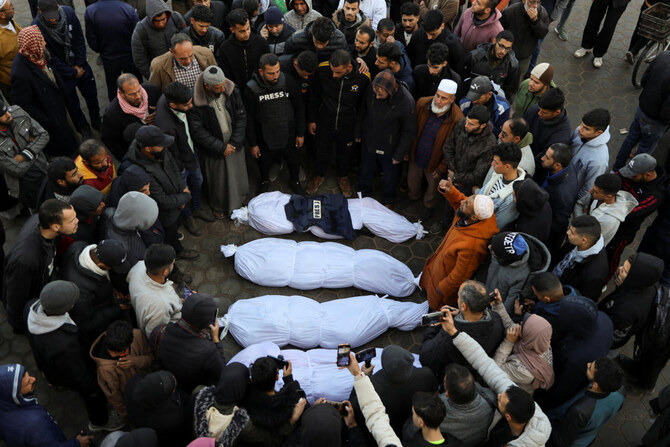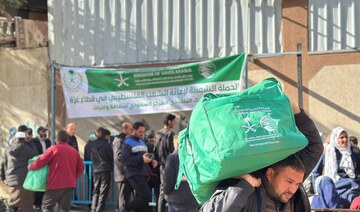Beirut is a city that holds so much of my personal past. I lived and worked here many times between 2019 and 2021, and its streets and people became deeply connected with my memories; now those memories are clouded by the people’s suffering.
The war has upended lives, turning schools into temporary shelters for families forced to flee their homes.
Once lively classrooms now hold children and parents struggling against the cold and the weight of uncertainty.
The children sleep on the floor, wondering why they cannot return to their homes, while parents fear the next airstrike and its consequences.
Each day I visit these shelters, offering what help we can.
But the people I meet do not want just aid, they want to return to a life of peace.
They dream of a home where their children can be safe, away from the constant fear that shadows their days.
Despite our best efforts, true relief for them is not in temporary support, but in the hope of a peaceful tomorrow.

In September, I met a friend whose life had fallen apart; his wife and mother sleeping on the streets with nowhere left to go. It was a painful reminder of my own journey from Syria in 2014, when I crossed into Turkiye under cover of darkness searching desperately for safety. I spent months moving between shelters in Turkiye and Iraqi Kurdistan, never sure where I would find refuge next.
I became a doctor because I believed in treating and saving lives.
But after more than 10 years of responding to crises, I have seen lives beyond repair in ways I never imagined. With the charity Medecins Sans Frontieres I have been deployed to many conflicts and emergencies that most people hear about only in the news, including Syria, South Sudan, Ukraine, Iraq, Ethiopia, Sudan, and Lebanon. Each mission, each new crisis, has become a chapter in a long story of resilience amid unbearable pain.
But that resilience is wearing thin, not just for those I serve, but for me as well. I am tired — tired of witnessing suffering, and tired of the systems that perpetuate it.
Nevertheless, amid this heartbreak, I find reminders of why I cannot turn away. Even when the path is difficult, even when hope feels distant, I know that our humanitarian efforts can make a difference, offering a small light in the darkness.
My journey of displacement began in Aleppo in 2012.
It was once my home, a place where I studied medicine, loved, built relationships, and made plans for my future.
But the war ripped those plans apart, forcing me and millions of other to illegally cross borders in search of a place of safety.
Even now, after all these years, I struggle to put into words what it feels like to be uprooted from everything familiar, everything you’ve ever known.
Leaving Aleppo did not just take away my home: It took my life and my sense of peace.
The constant displacement, the uncertainty about the future — it chips away at you, slowly.
It’s not just the physical exhaustion; it’s the mental and emotional toll that settles deep into your bones. Every move is haunted by the question of when the next tragedy will strike.
The exhaustion I carry is also reflected in the faces of the people I meet. In camps in Iraq, temporary shelters in Lebanon, and overcrowded hospitals in South Darfur, I see people who are beyond tired — they are broken.
They have survived bombs, violence, outbreaks, natural disasters, and displacement, and the psychological scars have left them shadows of who they once were.

For more than a decade, I have been part of MSF’s team, going where there is the most need. From treating severe malaria in South Sudan, to providing care for survivors of sexual violence in Ethiopia and managing a malnutrition crisis in South Darfur, I’ve poured everything I have into this work. But every mission has reminded me of the fragility of life and the limitations of humanitarian aid.
We heal wounds and provide humanitarian relief, but the root causes of many crises remain unaddressed.
I’ve sat at negotiation tables with armed groups many times, trying to secure access for lifesaving aid, only to watch bureaucratic red tape or political agendas stall the help we are desperate to deliver. The constant struggle to provide healthcare in the face of political resistance is a kind of exhaustion that no amount of rest can ease.
I am tired of seeing children die from preventable diseases.
I am tired of watching families flee their homes, only to find themselves with no safe place to go.
I am tired of walking through cities reduced to rubble and wondering how many more generations will grow up in the shadow of destroyed schools instead of classrooms.
The psychosocial trauma is not just something I witness in others; it’s something I carry within myself. I remember the faces of patients and friends I could not save in Kobani in Syria, all the children whose lives were cut short by conflicts. These memories stay with me, a constant reminder of the limitations of what we can do. No matter how hard we try, we cannot fix the broken systems that allow this suffering to continue.
But in those darkest moments, there are also moments of humanity that keep me going. A mother’s grateful smile after I treated her ill child: an elderly woman who, despite losing everything, thanked me as I handed over her diabetes medicine. These small acts of resilience and gratitude are what keep me pushing forward, reminding me that there is still light amid the darkness.
Although I am tired, I am not defeated. Throughout my 10 years with MSF, I’ve witnessed the enduring impact that humanitarian work can have, even when it feels like only a drop in the ocean.

I’ve seen people rise, despite overwhelming odds, and I’ve seen how solidarity, even in little doses, can make a difference. My tiredness is not just personal, it’s collective. It’s the exhaustion of every humanitarian worker, nurse, midwife and doctor who has stood on the front lines, doing their best in a world that often feels indifferent. It’s the exhaustion of a world that has watched too much suffering, with too little change.
What I hope for, more than anything, is not just an end to my own fatigue, but an end to the need for humanitarian workers like me to work in war zones.
I dream of a world where families, including my family, are not torn apart by violence, where children can grow up in peace, where doctors like me can focus on curing people — not just surviving.
I dream of a world where I can finally be with my son, with the love of family and friends, in a place where peace is no longer just a hope.
Yes, I am tired. But as long as there is work to be done, as long as there are lives to be saved, I will continue. And I hold on to the hope that one day, the world will no longer be so exhausted.
• Dr. Ali Almohammed is an emergency medical coordinator with over a decade in humanitarian work, specializing in leading medical responses in conflict zones, natural disasters, and health crises across the Middle East, Asia, and Africa. He is currently serving as an emergency medical coordinator for MSF OCA in Lebanon.

























